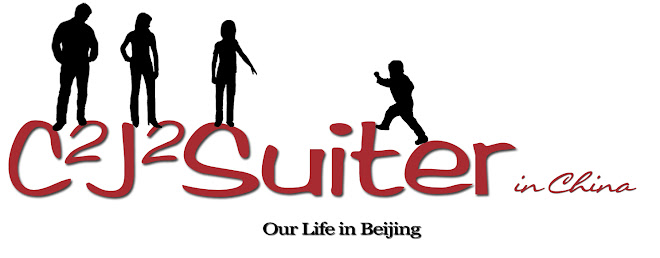It all started with an interview of China Publications Import and Export Corporation vice-president Liang Jianrui who told China Daily: "We will provide most of the world's top-selling newspapers and magazines." So far nothing to stop the press since the relaxation of curbs on magazines and newspapers follows Olympic protocol. Previous host cities like Athens, Sydney and Atlanta were also asked to ensure journalists and athletes had access to all leading international publications. But then Liang also distinctly mentioned Playboy this way: "Our law forbids Playboy and we should obey this, but we can't rule out the possibility that it might make its debut (in China). There might be a demand for it." Although several influential domestic Chinese newspapers have since reported that they could not get official confirmation of the executive's remark --I presume no one would announce such a decision under the circumstances, even if there were one –
Beijing is going all out on a PR offensive to show the world next summer that it is an international city and is ready to bend the rules to give visitors a more comfortable stay. In addition to implementing a citywide clean-up campaign involving taxi-drivers and social etiquette lessons, it is ramping up English learning across the city, recruiting an unprecedented number of volunteers for the Games and doing its utmost to sanitize the environment and food hygiene levels in the city.
The good news for athletes, tourists and journalists during the 2008 Olympics is that they will be able to find many of their favorite paperbacks at downtown bookstores, while also being able to catch up on the latest news from the nine designated kiosks only hours after publications like the Financial Times are printed in Hong Kong. Popular Asian newspapers such as Hong Kong's South China Morning Post, Singapore's The Strait Times and France's L'Equipe will also be available, said Liang. Liang said his company is also talking with leading newspapers including The Washington Post and Los Angeles Times to keep down retail costs and make sure the papers arrive in a timely manner. These two dailies do not have access to printing presses in Hong Kong and must be flown from the United States to Beijing.
Each kiosk will retail over 100 kinds of newspapers and magazines, including publications that are difficult to find like The New York Times, Newsweek and Britain's The Sun famous for its topless Page 3 models. In the illustrative map published in China Daily, there were nine kiosks. Six of these are close to the National Stadium. There are three in the Olympics media village, one each in the Main Press Center, the Olympics Village and the International Broadcasting Center. Another one is at the Huabei Hotel, which will accommodate unregistered journalists. The one in Qingdao city is also located in the media center. It would seem that apart from the one kiosk at the Olympic Green, all the other kiosks are in places for journalists and athletes.
| Conveniently located for the Athletes AND Journalists |
One other blog made the following comment:
It shows that the authorities have come to the laughable conclusion that when foreigners complain about the lack of freedom of the press in China they are referring to pornography. (we’re talking about the BBC being constantly blocked.)
Even better than the fact that China appears to think that allowing porn equals free press, there seems to be an implication that the foreign athletes will go crazy without a playboy for a few weeks. The impression seems to be that after years of training, during the most two important weeks of their young lives these athletes will be hunting the city’s news stands for girlie mags.
I sure will keep you posted on the availability of the bunny magazine in Beijing next August. In fact I might have to send Jeff to find out since I will be in France where I’m pretty sure it is available (not that I would know!)





